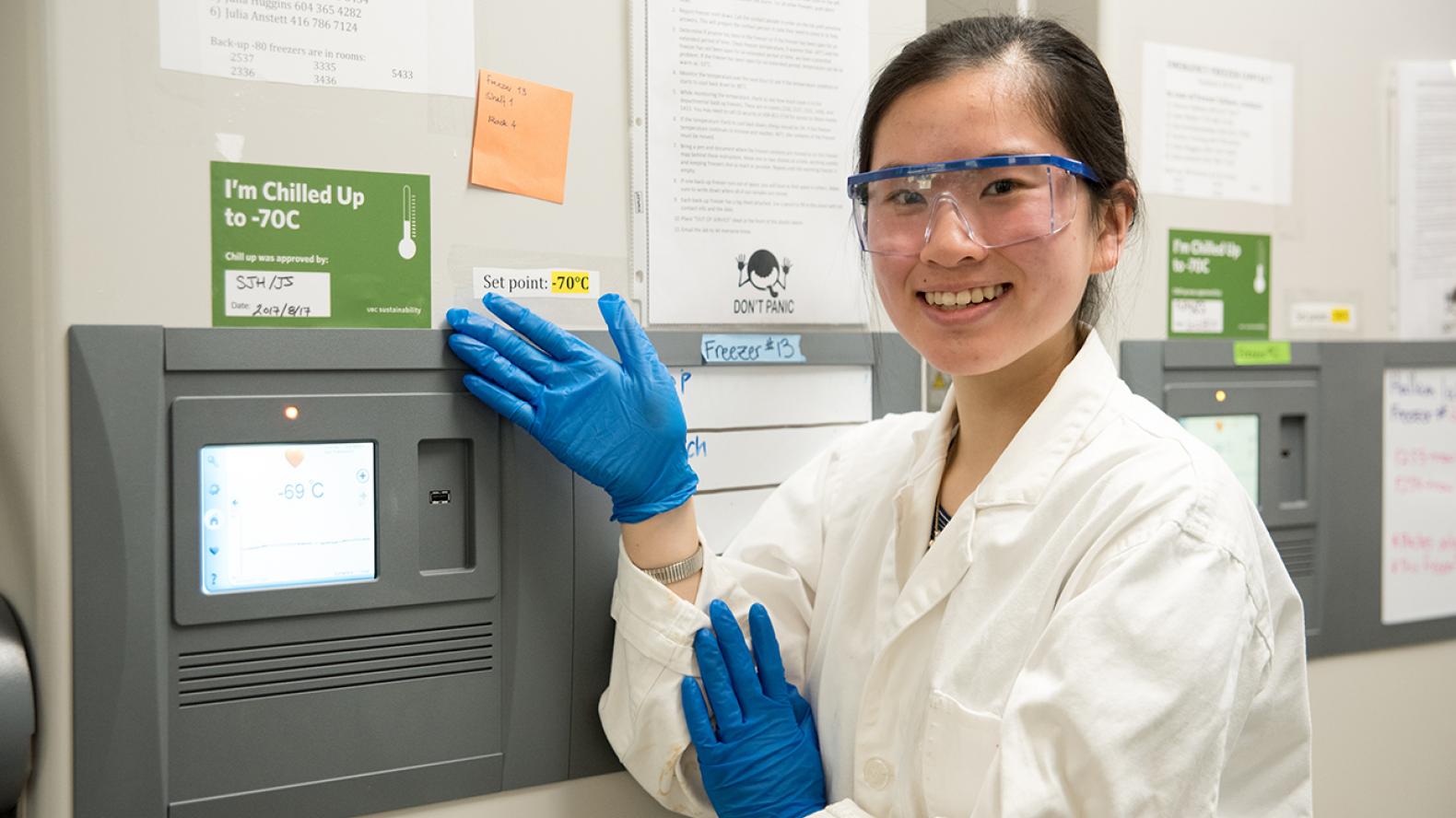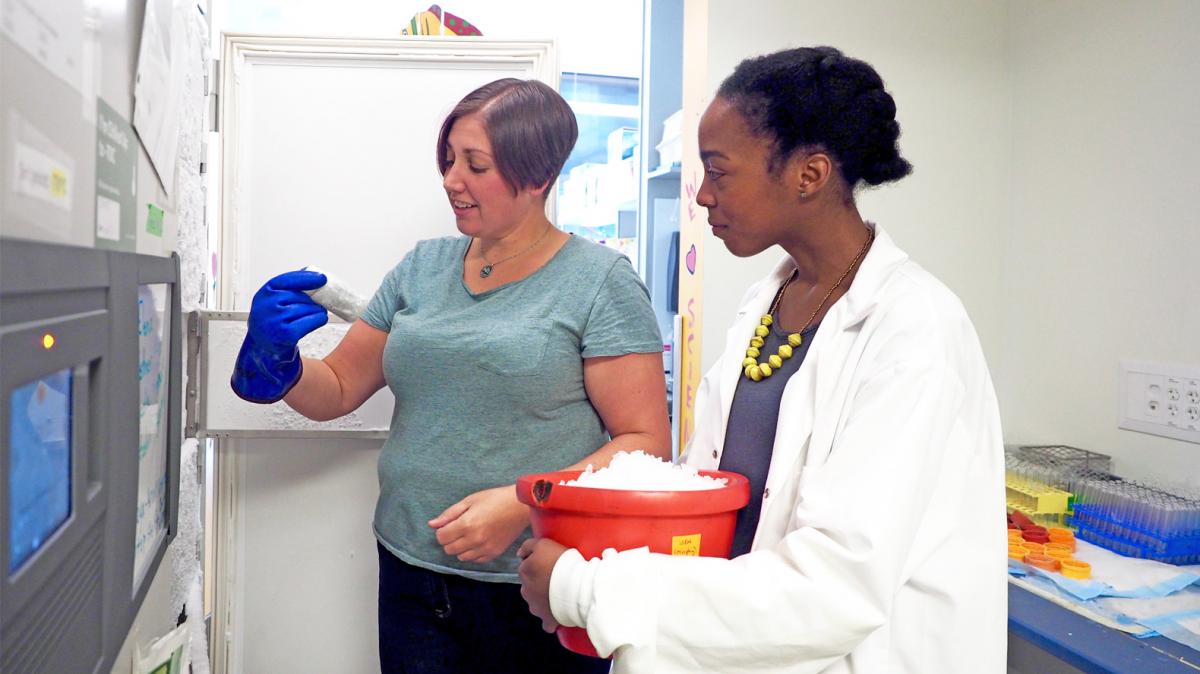
At UBC, researchers turn up their freezers to bring their energy use down. By taking part in the Chill Up Challenge, laboratories across the university have improved freezer performance and longevity and saved greenhouse gas emissions and energy costs.
In 2017, Michael Smith Laboratories was the first department at UBC to take the Chill Up Challenge which is UBC’s version of the Freezer Challenge, an international competition managed by My Green Lab and the International Institute for Sustainable Laboratories (I2SL) to reduce energy consumption and increase longevity of Ultra-Low Temperature freezers.
These freezers, also known as ULTs, are essential to research at UBC, preserving millions of precious samples. A standard ULT freezer set at -80°C consumes as much electricity per year as a single-family home.
Research has shown that increasing ULT temperatures by ten degrees (from -80°C to -70°C) is safe for many sample types and can reduce a freezer’s energy consumption by as much as 40%.
Jade Shiller of the Hallam Lab, one of Life Sciences Centre’s largest labs explains, “By chilling up our freezers, we not only reduced our carbon footprint, but we also prolonged the life of our freezers. That means fewer midnight freezer emergencies, and that is a huge relief!”. With a 61% participation rate, 11 research groups in Michael Smith Laboratories have reduced annual electricity consumption by 45,000 kWh, or over four single family homes.
Life Science Centre meets the Chill Up Challenge
UBC Life Science Centre (LSC), the largest research facility at UBC, houses 88 research labs, and claims the title of largest building on campus at 52,000 square meters. While LEED certified and fitted with energy-saving features such as a dynamic monitoring system for interior lighting, research equipment such as ULTs make a significant contribution to building’s electricity consumption.
From January to February 2019, LSC researchers took the Chill Up Challenge and during the two-month challenge, 40% of eligible ULT freezers were set to -70°C. Through chill up, LSC savings are ongoing with more than 71,500 kWh of electricity per year, equivalent to the annual electricity consumed by seven and a half single family homes.
Meeting UBC’s Sustainability Goals
“The Chill Up Challenge fits into the university’s overarching sustainability goals, including UBC’s Climate Action Plan and energy reduction goals, by engaging and educating researchers on an impactful energy saving behaviour,” said Bud Fraser, Senior Planning and Sustainability Engineer.
UBC’s Green Labs Program has other conservation efforts underway in labs across campus including Shut the Sash, which addresses the large volume of conditioned air that moves through fume hoods by encouraging researchers to close fume hood sashes when not in use.

Reini Kappelhoff, lab manager for the Overall Lab in LSC, has been operating her lab’s ULT at -70°C for many years and encourages others to make the change as well. Kappelhoff mentions that lab managers may be skeptical of making the switch to -70°C, but the data doesn’t indicate any reason to be concerned. She adds “these ten degrees will not make any difference in their samples, but a huge difference in their energy savings”.
For many labs in the building, making the transition from -80°C to -70°C was natural. In fact for the Devine Lab it was such a smooth transition that Lab manager Katherine Serrano states “no one would have noticed in the lab the difference”.
Serrano notes there’s no real reason why any lab shouldn’t take on the Chill Up Challenge. To other labs at UBC and other universities across Canada, she says “do it!”.
The Chill Up Challenges were organized by Green Labs with help from the Michael Smith Laboratories and Life Sciences Centre Lab Sustainability Coordinators and BC Hydro’s Energy Wise program. Learn how to Chill Up your lab or become a lab Sustainability Coordinator today!